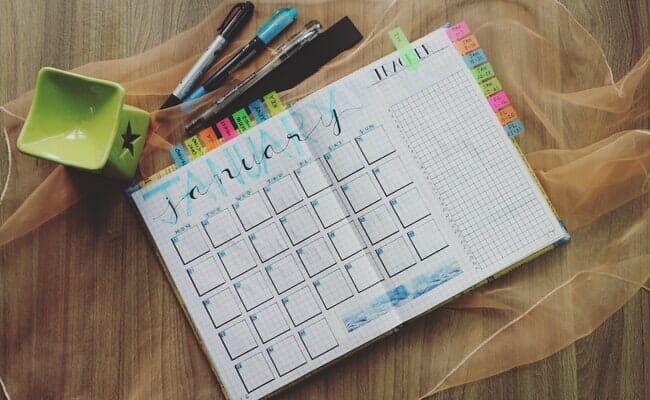11 Ways to Treat Depression Without Medication
If you have been feeling down in the dumps lately, you do not have to rush to the pharmacy. Believe it or not, you can do many things at home that may decrease depressive symptoms. You might want to try those before getting medication.
Natural treatments could help you save money on expensive consultations and antidepressant medications. More importantly, they could help you avoid unintended effects like poor sleep and excessive weight gain. Let us look at a few examples!
These home remedies for treating depression include various activities and products, such as proper diet and specific foods. If they worsen, please consult your doctor. Note that this article does not intend to provide medical advice.
Here are the 11 ways to fight depression without meds:
- Start a diet regimen.
- Reduce your caffeine and alcohol intake.
- Perform more exercise.
- Speak with people more often.
- Try to meditate.
- Get enough sleep.
- Spend more time in nature.
- Have more fun.
- Set a routine.
- Develop a positive perspective.
- Set a goal beyond yourself.
1. Start a diet regimen.
You may have to look into your gut to reduce depressive symptoms. Several studies suggest that foods and drinks could affect overall mental health.
In other words, changing your diet may work as a natural depression treatment. You may have heard the typical recommendation to eat more fruits and veggies, but which ones should you choose?
You need antioxidants, proteins, selenium, omega-3 fatty acids, and complex carbohydrates. Here are some examples for each nutrient:
Antioxidants
Studies show that the human body often produces free radicals that cause cell damage and other health issues. Specifically, they may put your brain at risk.
Fortunately, you can protect your mind by eating antioxidants like Vitamin C, E, and Beta-carotene. Let us look at some examples:
- Vitamin C – broccoli, kiwi, oranges, grapefruit, potatoes, blueberries, peppers, tomatoes, and strawberries
- Vitamin E – vegetable oils, margarine, seeds, and nuts
- Beta-carotene – carrots, cantaloupe, carrots, peaches, pumpkins, sweet potatoes, spinach, and apricots
Proteins
Amino acids make up proteins, which help grow and repair your body. Fortunately, proteins could aid in improving mental health. For example, the protein tryptophan could trigger serotonin production.
It is also known as the “feel-good” brain chemical, and it may give you improved mental well-being. You can find it in tuna, chickpeas, turkey, and:
- Yogurt
- Butter
- Cheese
- Pork
- Chicken
- Seeds
- Avocados
- Mushrooms
- Onions
Meanwhile, you might want to adopt the keto diet. It involves eating protein-rich foods, which could help you overcome depression.
Selenium
Experts say there is a link between insufficient selenium intake and low mood. The recommended amount is around 55 micrograms daily for adults.
However, we need more research to prove the positive effects of selenium. That is why you might want to concentrate on eating selenium-rich foods like:
- Lean pork, chicken, beef, and turkey
- Low-fat dairy
- Seeds and nuts
- Crabs, sardines, oysters, clams, and other seafood
- Whole grains like brown rice and oatmeal
Omega-3 fatty acids
Scientists found that people who do not eat enough omega-3 fatty acids have a higher risk for severe depression. Fortunately, you can get more by eating fish and these other foods:
- Fatty fish
- Soybean and canola oils
- Walnuts and other nuts
- Green leafy veggies
- Flaxseed
Complex carbohydrates
Many health experts will tell you to stay away from carbohydrates to lose weight. If you want to treat depression, you may need some of them.
Carbohydrates have two types: simple and complex. The former comes from added sugars and syrups in numerous snacks that increase body weight.
Meanwhile, complex carbohydrates contain natural fibers that give you energy. Like proteins, they could induce serotonin production that may help treat depression. You can find this healthy substance in the following foods:
- Beans
- Quinoa
- Barley
- Oatmeal
- Sweet potatoes
- Potatoes
2. Reduce your caffeine and alcohol intake.
Aside from adding a healthy diet to your life, you may want to eliminate certain habits. As mentioned, you should avoid simple carbohydrates that come from junk food.
Otherwise known as processed foods, they could give you an energy boost when you feel tired. Unfortunately, they lead to a drastic mood crash.
You should also avoid processed oils because they can harm brain function and may lead to more severe depression. You can find these in processed meats, corn oil, and safflower oil.
The same happens when you drink coffee. A moderate amount is a fine start to everyone’s mornings. However, too much can leave you feeling drained.
More importantly, you should avoid alcohol if you have depressive symptoms. Studies found a clear connection between this liquid and mental illness.
Some people may down a bottle to fight depression, but it would likely worsen their condition. Surprisingly, even one per day could lead to cancer.
As a result, their poor health may further ruin their mental health. Worse, it could counteract your prescription medications for depression.
3. Perform more exercise.
Moving around can help you feel better. Physical activity is so effective as a depression treatment that it rivals psychotherapy and antidepressants.
Exercise prompts your body to produce chemicals called endorphins. Like serotonin, it can make you “feel good,” but it can also reduce feelings of pain.
A 2021 study found that it can also boost brain plasticity. As a result, it could improve severe depressive symptoms. How much exercise do you need?
You must engage in at least 30 minutes of physical activity three to four times a week. For example, you could jog around your neighborhood for half an hour.
Expect a few uncomfortable side effects on your first try. They include heavy breathing, skin flushing, and heart racing. Rest assured that these are not allergic symptoms but are a natural reaction by your sympathetic nervous system.
If half an hour is too exhausting, you may start with a 10-minute stroll every day. After a week, you may try to increase your speed to a typical jog.
Lengthen the duration and intensity of your workout until you can jog for 30 minutes. You will not feel benefits initially, but your efforts will improve your mental health.
If you feel bored or unmotivated with the routine, you could ask a friend to join you. Perhaps someone you know already does regular exercise so that you may go along with them.
4. Speak with people more often.
When someone feels depressed, they are not “just feeling sad.” They also feel helpless, as if nobody is there to listen to their problems.
That is why the persistent sadness grows, so a mild depression eventually becomes more severe. Fortunately, you could fight against negative thinking.
You could reach out to your family members about what you are going through. Otherwise, you may speak with your dearest friends. Choose people that you can go to as soon as possible.
It is best to have a face-to-face conversation with other folks. Still, some circumstances could make it difficult for you to meet them. You might want to send them via phone call or DMs before heading to your friend or relative.
They could help you break the negative thought cycle by giving you another perspective on your situation. As you tell friends and family about your story, they may provide advice.
For example, they may suggest coping skills or solutions to the root causes of your depressive symptoms. Moreover, human contact can dispel your feelings of isolation.
5. Try to meditate.
Maybe the solution to your depression is within yourself. Does this sound cringey? Believe it or not, this statement is not some new-age mumbo-jumbo.
Nowadays, we are constantly keeping ourselves preoccupied with everything around us. For example, we constantly look at social media to compare our lives with our friends.
As a result, many people lose time to reflect on themselves. You probably have not asked yourself why you feel specific feelings or stress about certain things.
Worse, we constantly worry about what the future holds instead of concentrating on the present. Fortunately, mindfulness meditation can help reorient your perspective towards life.
It involves sitting still and closing your eyes for a few minutes. Meanwhile, repeatedly take in deep breaths and exhale to keep yourself relaxed.
Focus on every sensation you feel from your surroundings, such as a gentle breeze and the current temperature. Ensure your mind does not wander off to negative thoughts or other distractions.
You should do this for ten minutes every day. Like regular exercise, you may struggle to turn this into a daily habit. If that is the case, you may start with one minute of mindfulness and then extend the duration weekly.
The best meditation apps can guide you if this routine does not make sense. Many of them are free to install on Android and iOS.
6. Get enough sleep.
Did you stay up late today? Nowadays, more people struggle to sleep at night because of their smartphones. We constantly want to keep up-to-date with the latest social media updates.
Unfortunately, we could be taking too much time away from our regular slumber. Aside from the habit of checking online posts, the screens emit blue light that keeps us awake.
A regular adult’s recommended amount of sleep every night is eight hours. How much time do you set aside for a shut-eye? If you constantly fail to meet this average, that could significantly harm your mental health.
Someone who did not get enough rest may seem cranky and tired. If these people keep on skipping sleep, that person may eventually experience moderate depression.
Ironically, someone with depression often struggles to fall asleep. That is why you will need to exert more effort into getting enough rest. The following steps may help you:
- Start by determining when you could get that eight hours of sleep. If you are having trouble finding a slot, you are not alone. Nowadays, people work and study online, causing an irregular schedule.
- Keep the 90 minutes before that timeslot free of any strenuous activity. For example, refrain from checking emails or your phone. Instead, do something enjoyable like listening to music.
- Make sure to stay in bed once the time comes. If you wake in the middle of the night, get up and do something soothing for 20 minutes, then lie down again.
If these methods do not work, you might try these techniques too:
- Take a hot shower or bath before going to bed.
- Keep room temperature at 18°C (64°F).
- Alternatively, turn off all the lights or wear a sleeping mask.
- Decrease blue light from gadgets via app or settings.
7. Spend more time in nature.

Hang around on the internet for some time, and you may come across the term “touch grass.” People use this as a derogative way of telling others to be realistic by going outside.
Despite the negative connotations, this statement contains sound advice. We have already discussed how isolation can exacerbate what a depressed person feels.
Besides socializing, exposing yourself to nature can help treat depression. It would be ideal if you could travel to a national park or a province that has many trees.
Of course, going to a nature preserve or similar location can cost a lot of money. If these areas are not viable, you might find parks within your city.
If you cannot go outside and get close to nature, you may want to bring it to your home. You can do that by taking care of indoor plants. They could provide these benefits:
- Caring for leafy life can reduce psychological stress.
- As a result, practicing your green thumb can decrease anxiety and depression.
- What’s more, putting plants in your workspace can help you concentrate.
You could even go the extra mile by growing food at home. As you get used to indoor plants, you can try cultivating fruits and vegetables at your place. They can treat depression and reduce your expenses!
8. Have more fun.
Believe it or not, you might just need more time to enjoy yourself. It is easy to exhaust your energy levels if you do not do anything besides your daily obligations.
It may seem unusual, but many people forget to have fun, especially adults. People in their 20s and beyond will likely immerse themselves in their work and family.
Prioritizing your duties is a healthy sign of maturity. However, you may neglect your needs too often for the sake of others. You might wait to feel “in the mood” before having fun.
This procrastination can continue for several months or even years until your body and mind feel spent. As a result, you may feel depressed.
Like setting a sleeping schedule, you must be more deliberate about leisure activities. Give yourself at least 30 minutes for things you enjoy.
Look back to your past hobbies, such as drawing or biking. Then, set aside half an hour to perform those activities. Make sure you commit to having fun by removing distractions like phone notifications.
If you find everything boring, know that it is another common depressive symptom. You can beat this by simply trying new things.
Doing the same thing every time will indeed bore anyone. That is why you will need to break out of your comfort zone. If you still feel pessimistic about these activities, you might want to write in a gratitude journal.
Get a paper notebook or your phone’s note-taking app. Then, jot down everything you are thankful for daily, no matter how mundane.
For example, you could jot down your gratitude for a delicious breakfast. This activity can also treat depression by shifting negative thoughts to positive ones.
9. Set a routine.
Most people do not want to talk about the “C-word,” but it is a significant reason why many suffer from depression nowadays. The COVID pandemic is over for many parts of the world, but its effects still linger.
It broke the routines that guided us. Many people do not like doing the same work or studying grind every day, but it helps people make sense of their lives.
The lockdowns got rid of these routines for nearly two years. As a result, people felt lost and confused, making them more susceptible to depression.
Unfortunately, some folks still could not continue their studies and careers. If you are experiencing the same situation, you could try to establish a routine without those.
Remember the activities we discussed that could fight depression? You could organize them into your new routine to form a new order in your life.
This new structure could keep the thoughts of being adrift at bay. As a result, you might gain a better perspective of your daily activities and feel less depressed.
10. Develop a positive perspective.
Did you notice a similarity among these depression-busting techniques? They help you adjust your negative thinking into affirmative ones.
They will not work if you do not consciously decide to become more optimistic. Before continuing, let us clarify that some problems are outside your control.
However, you will need to look deep into yourself to separate the ones you can change and those you cannot. Sometimes, the issues are within your control.
You could resolve these issues with lifestyle changes and other methods. Otherwise, you may change how you feel and think about situations.
Let us use the previous method of having fun as an example. We mentioned that you should try new things so that you may find new sources of enjoyment.
This pessimism may come from your “depression voice,” the perspective that sustains your negative thoughts. It may tell you that trying a new thing will not be fun.
You may counter it by thinking, “We will not know until we try.” It makes sense because you have not tried that new activity yet. As a result, you are more likely to start that activity and find leisure.
Meditation can help you discern between the “depression voice” and yours. We discussed it as a way to beat depression without medical treatment.
11. Set a goal beyond yourself.
You may scratch your head upon reading the following method. Depression is an individual illness, so shouldn’t you focus on self-care and similar techniques?
Before we continue, note that the root causes of depression can vary depending on each person. However, some tend to only focus on themselves.
They clock in and out of their jobs and classes, never seeing any better reason to continue. They may wonder if their lives have meaning beyond their routines.
People may think such things when their lives do not impact anything beyond themselves. That is when a person may consider helping others.
For example, you could volunteer at your local soup kitchen or become a part-time tutor. This article and the other ones on Inquirer USA are great examples too.
Many people around the world would learn how to beat depression without medication. As a result, it could help you and other people get their lives back on track.
You might be able to do the same with your current job. Otherwise, you might want to get a part-time role that lets you help other people.
Conclusion
We have discussed ways how to beat depression without medication. Again, keep in mind that this article does not aim to provide medical advice.
If your depression symptoms persist or worsen, consult a doctor. Nowadays, more people seek help for this medical condition, so you are not alone.
Make sure you follow your doctor’s prescription. Skipping doses of selective serotonin reuptake inhibitors and similar drugs could lead to withdrawal symptoms.
Frequently asked questions
Is there a way to end depression?
You might be able to beat mild depression by having a support group and a social life. Otherwise, you may want to speak to your doctor for further assistance.
How does physical and mental health affect depression?
Physical health can promote the production of hormones that improve mental health. As a result, you may be able to beat depression, even without treatment.
Can CBD oil help with depression?
Some studies suggest that CBD oil may positively affect depressed individuals. Yet, you should talk to your physician before using CBD for depression.
When should I consult a doctor?
You should talk to a doctor about your depression if it affects your relationships. More importantly, do it immediately if you are having suicidal thoughts.












